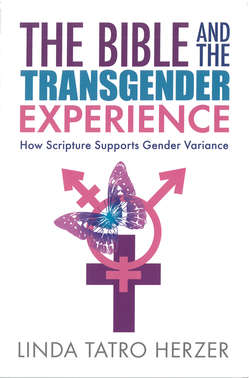Читать книгу Bible and the Transgender Experience - Linda Herzer - Страница 9
На сайте Литреса книга снята с продажи.
Оглавление1
WHAT WE ARE AND ARE NOT TALKING ABOUT
LGB and TQI
I am a minister who identifies as straight and nontransgender. Four years ago I joined the staff of a church where most of our congregants identified as gay, lesbian, or transgender. As a result, I began encountering the acronym “LGBTQI” with some frequency. I learned that “LGBTQI” is an abbreviation for “lesbian, gay, bisexual, transgender, queer/questioning, and intersex.” I also learned that lumping all these letters together sometimes leads to the misunderstanding that being L, G, or B is the same as being T, Q, or I. However, this is not the case. There are some very important distinctions between these terms. (If these terms are new to you, as some of them were to me, know that I will explain them in greater detail in the next chapter.)
The words “gay,” “lesbian,” and “bisexual” refer to one’s sexual orientation. Sexual orientation, generally speaking, has to do with whom one is attracted to romantically. The word “transgender,” broadly speaking, refers to one’s gender identity and/or one’s gender expression. Gender identity has to do with a person’s internal sense of themselves, whether they know themselves to be a woman, a man, or possibly both or neither. Gender expression has to do with how people outwardly express their gender through dress, mannerisms, hairstyles, vocal inflections, and so on.
My transgender congregants helped me understand that being transgender has nothing to do with one’s sexual orientation, that gender identity and sexual orientation are two totally different things. They explained it this way: Being gay is about who you go to bed with; being transgender is about who you go to bed as. Consequently, transgender individuals can be gay or straight or bisexual or any of the various sexual orientations that human beings experience.
Regarding the “Q” and the “I” in “LGBTQI,” persons identifying as queer or “questioning” could be referring to their sexual orientation, their gender identity, their gender expression, and/or all three. The word “intersex” refers to one’s biology. People who are intersex are born with genitals, internal reproductive organs, or chromosome patterns that do not fit typical definitions of male or female.1.
Many helpful books have been written about what the Bible has to say about homosexuality, that is, about the LGB, so that is not what we will look at here. In this book, we will consider what scripture has to say about the TQI—about gender and biological variance. So let’s begin!
